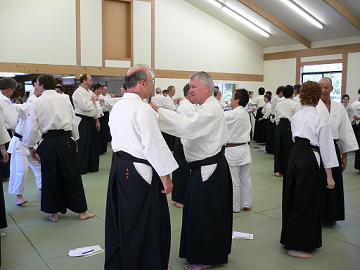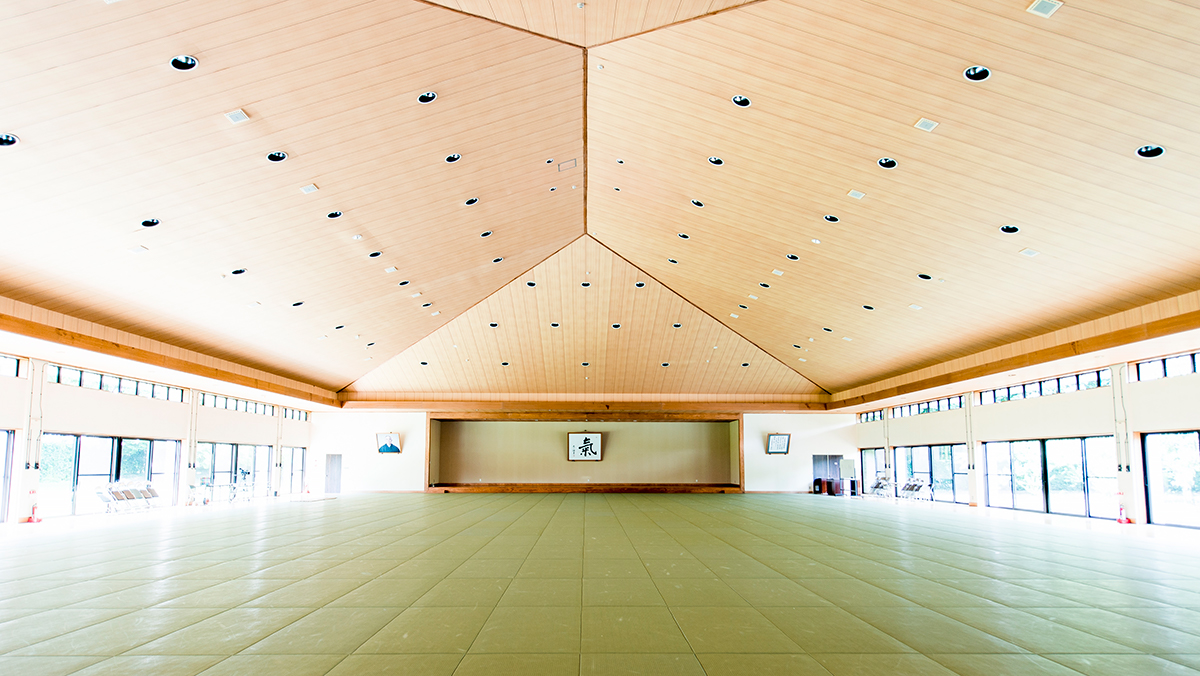
If you have been studying Ki-Aikido, or if you might like to begin, it may be useful for us to check the purpose and basic concept of this practice. Koichi Tohei sensei tells us that the most important aspect of this practice is to control our mind and body.
Control of our mind and body is extremely important not only in Ki-Aikido but also in human relationships in our daily life. When we have problems, we may tend to try to find the cause outside of ourselves, instead of within, if we do not use careful consideration. We may have a habit of thinking “I’m not wrong but others are”.
So we try to change others instead of ourselves. The result may be a backlash or conflict, and in addition we will have failed to lead others.
First you must change yourself, if you really want to lead others. Sometimes I find myself that I try to change others. When I found this, I mend my behavior by myself.
As this relates to techniques of Ki-Aikido, before thinking of trying to throw our partner, we first must check whether our mind and body are stable. Stability is condition of oneness of mind and body. Stability is achieved through self control. This means to maintain the condition of oneness of mind and body.
In the beginning, we must learn to control our own mind. The inherent stability of our mind comes from our perception of the condition of the world around us. For instance, in Ki-Aikido, when our partner holds our arms, we may think “I am being held by my partner” or “I made my partner hold me.”
If you have a positive, or plus, mind, your body necessarily becomes plus in concert with it. If you want to do techniques of Ki-Aikido correctly, you need this positive mind that we call “Ki is extending.” Once you get this “Ki is extending” mind, while practicing Ki-Aikido, it will become the foundation of all things in your daily life.
We tend to have selfish minds that think only of our own selves. In Ki-Aikido techniques, that translates as, “I want to throw my partner” or “I want my partner to do as I wish.” Of course, in practicing Ki-Aikido, there is always a possibility that we will exhibit selfish mind. Unfortunately, in that state of mind, no one can do correct techniques.
If we look at the “Five Principles of Ki-aikido”, as presented by Koichi Tohei sensei, and in so doing take note of and amend our own mistakes, we will be able to lead our partners.
The repetition of the process of noticing and amending mistakes is what we call “Keiko” or “practice”.
Five principles of Ki-Aikido:
1. Ki is extending
2. Know your opponent’s mind
3. Respect your opponent’s Ki
4. Put yourself in your opponent’s place
5. Lead with confidence.
Let’s practice together based on the Five principles of Ki-Aikido.
SELF CONTROL



